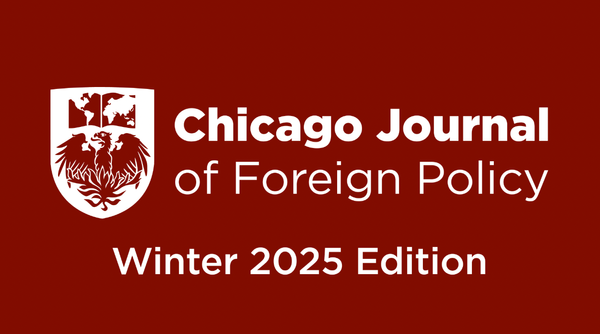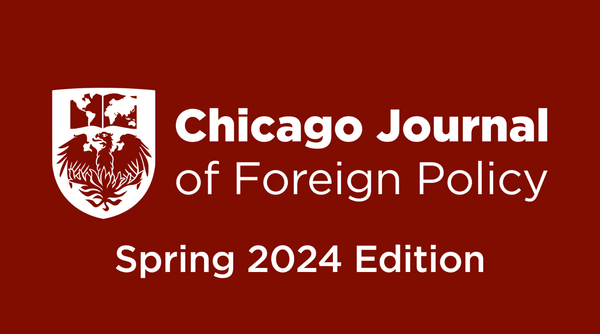China in Global Politics: The Coming of a New Era

by VALERIE KELUN ZHU
Currently, China has been collaborating with a great number of developing countries, offering loans four times as much as the World Bank offers to its partners. While China has now undeniably become one of the most crucial players in international politics, its diplomatic moves are still occasionally puzzling. Against this backdrop, one question is often at the center of the debate: Do economic benefits remain China’s top priority, or has a greater ambition already formed? Further, with all of China’s new overseas initiatives, does its growing involvement on the international stage mean the end of its decades-long diplomatic isolationism?
There is an old saying in China: “to conquer the outside one must have peace within first.” It means that if a nation wants to make a greater impact on the outside world, its internal affairs must be settled first. This political and diplomatic philosophy has dominated China for thousands of years. Thus, in order to understand China’s diplomacy, one must take its domestic politics into account: China is highly unlikely to rush into any diplomatic engagements with its internal social contradictions unresolved.
One of the events that can shed some light on this problem is the recent 19th National Congress of the Communist Party of China, which can be seen as a turning point for Chinese rhetoric both on domestic issues and on diplomacy. At this convention, on behalf of the 18th Central Committee of the CPC, President Xi declared the coming of “a new era.” Noticeably, the national leader put emphasis on the fact that the principal agenda for the Chinese society has been significantly changed: it has shifted from “people’s ever-growing material needs” to “people’s ever-growing needs for a better life.” [1] By saying so, Xi has acknowledged the fact that the lives of Chinese people have been significantly improved and the fulfillment of the nation’s goal dated back to its founding time would no longer apply to the current situation: it is time to move on to the new agenda. One can tell from the message conveyed at the Convention that the “peace within” has already been somehow assured. Thus, it would not be hard to come to the conclusion that Xi has consolidated enough domestic power to redefine China’s external environment, or in his own words, “this will also be an era that sees China moving closer to the center of the international stage and making a greater contribution to mankind.” [2]
Many scholars would claim that all of these diplomatic moves demonstrate China’s “business first” approach when it comes to international relations. They were led to believe that China has merely been seeking economic benefits instead of establishing a new international order. However, these economic and soft power investments are China’s way of establishing a new order and challenging the existing structure founded by the West.
When it comes to China’s overseas initiatives, Africa is usually the first that comes to mind. In Africa, China has demonstrated a kind of partnership that is drastically different from its Western counterparts. Dr. Paul Tembe, a South African Chinese Studies analyst, told VICE: “When China started engaging Africa, it came to an Africa which already had relations with the West. So China had to discover weak points or business gaps.” When asked about the Chinese political and cultural engagement in Africa, he said, “the two are intertwined, actually. For example, if we take traditional financial institutions like IMF, the World Bank—when they invest, they have prerequisites. They tend to be political on how Africa should govern its own territory. China doesn’t have those prerequisites. That is stemming from their foreign policy of non-interference.” [3]
This policy can also be seen as the driving force of many Middle Eastern countries which are now closely collaborating with China. Turkey, which has moved further and further away from the West because of its tensions with the EU and the U.S, is now a partner of China. For example, a joint Chinese-Turkish consortium completed a high-speed railway, with many more collaborative infrastructure projects along the way. [4] Another example is Iran, whose relationship with the West is now worsened by President Trump’s stance on the nuclear deal. As a result, Iran is gradually moving closer to China. As a matter of fact, Iran is looking to join the Shanghai Cooperation Organization (SCO) as long as the UN sanctions are removed. From a broader point of view, Turkey and Iran, as the endpoints in the China-Central West Asia Economic Corridor, are valued by the Chinese government especially given the Belt and Road Initiative (BRI). On the trade side, according to the Washington Post, China’s bilateral trades with these two countries have tremendously increased in recent years, with Sino-Iranian trade growing from $8.5 billion in 2005 to $31.6 billion last year, and Sino-Turkish trade increasing from just under $7.5 billion in 2006 to over $27 billion in 2016. [5]
As Dr. Tembe noted, China is stepping into the international order established by the West, seeking to form new relationships with countries that had declining relations with the West. And China is accomplishing this in its own way. China’s approach features substantial soft-power investments in developing countries like African nations, many of which are estranged from the West because of political tensions; China does not impose political prerequisites on these countries; and their partnerships often result in the formation of new economic alliances, such as the BRI and SCO. Indeed, these alliances are mostly economic in nature, but the impact made by these organizations as well as other Chinese overseas economic initiative is surely politically driven. China came to realize that economic interdependence is one of the most crucial factors in determining the course of contemporary global politics. Thus, a country’s external economic relations inevitably shapes its diplomatic future. It is also highly likely that these nascent alliances will transform the geopolitical landscapes and lead to a new global order, in which economically-driven collaborations will weaken alliances based on consistent ideologies. Economic transactions will gradually blur the line between the two camps-authoritarian nations and democratic nations. The need for substantial development will come before political accordance with the West.
However, this reconstruction of the global order is not yet achievable. The non-interference policy may prove to be both the blessing and the curse for Chinese diplomacy. This idea is incorporated into a larger principle of neutrality, which has been followed by the Chinese government ever since the nation was founded. Because of this principle, China is bounded to stay neutral when it comes to major international affairs, which explains why China has always abstained from voting on U.N resolutions. Thus, although its neutrality has been embraced by many countries politically estranged from the West, the lack of a firm stance will prove to be an obstacle that prevents China from taking on greater international responsibilities.
Many have failed to acknowledge the dual nature of China’s overseas initiatives: They are as much economically-based as they are politically-driven. It’s important to see beyond the facade of China’s “business first” approach. We must acknowledge the impact of economic interdependence on international relations. And the new global economic network created by China is gradually eroding the previous geopolitical landscape established by the West. As Xi declares that China has achieved “the peace within,” the country’s shift to reshaping its external environment would be inevitable.
Works Cited:
“Xi Delivers Report to 19th CPC National Congress.” China Daily. October 18th, 2017.
Ma Xiaolin, “Impetus for Peace & Development.” Beijing Review. February 4th, 2016. http://www.bjreview.com/Opinion/201602/t20160201_800048092.html
“China in Africa.” VICE on HBO: Season 4, Episode 10. https://www.youtube.com/watch?v=UBBkjmMlb9U
Jonathan Fulton, “China is trying to pull Middle East countries into its version of NATO.” The Washington Post. June 21st, 2017. https://www.washingtonpost.com/news/monkey-cage/wp/2017/06/21/how-china-is-shifting-toward-the-middle-east/?utm_term=.88a5d3fd9902
Yoram Evron, “China Has a New Middle East Peace Plan.” The Diplomat. August 14, 2017. https://thediplomat.com/2017/08/china-has-a-new-middle-east-peace-plan/





